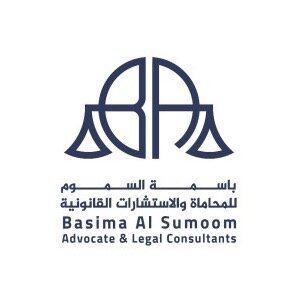Best General Litigation Lawyers in Seeb
Share your needs with us, get contacted by law firms.
Free. Takes 2 min.
List of the best lawyers in Seeb, Oman
About Litigation Law in Seeb, Oman
Litigation in Seeb, Oman, involves the legal process whereby individuals or entities resolve disputes in court. This could include civil lawsuits, commercial disputes, labor issues, or family law cases. The Omani legal system is based on traditional Sharia law, codified statutes, and royal decrees, and it is crucial to navigate these carefully to achieve a favorable outcome in litigation.
Why You May Need a Lawyer
There are several common situations where you may need legal assistance in litigation:
- **Commercial Disputes**: If you are a business owner dealing with contract disputes, partnership disagreements, or other business-related issues, a lawyer can help you protect your interests.
- **Civil Lawsuits**: Suits over property rights, personal injuries, or other civil matters often require legal expertise to ensure your case is well-represented.
- **Family Law**: Divorce, child custody, and inheritance disputes can be complex and emotionally charged, making legal assistance essential for navigating these cases.
- **Employment Issues**: If you are facing disputes related to employment contracts or wrongful termination, consulting a lawyer can help you understand your rights and obligations.
- **Debt Recovery**: If you are owed money and need to recover debts through legal means, a lawyer can guide you through the processes and represent you effectively.
Local Laws Overview
Understanding the local laws in Seeb, Oman, is crucial for anyone involved in litigation:
- **Legal Framework**: The legal system in Oman is a mix of Islamic Sharia law and civil law codified through royal decrees. Understanding both these aspects is vital for litigation.
- **Court System**: The judiciary in Oman consists of the Primary Court, the Court of Appeal, and the Supreme Court. Litigation typically begins at the Primary Court level.
- **Civil Code**: The Omani Civil Code governs contract law, torts, and other civil matters. Familiarity with its provisions is essential for resolving disputes.
- **Commercial Code**: The Commercial Code regulates business practices, including trade, business entities, and commercial transactions.
- **Labor Law**: Oman’s labor laws protect the rights of employees and outline the responsibilities of employers. These laws are particularly relevant in employment-related disputes.
- **Family Law**: Family disputes are often settled under Sharia principles, particularly in matters of marriage, divorce, and inheritance.
Frequently Asked Questions
What is the first step in filing a lawsuit in Seeb, Oman?
The first step is usually to consult with a lawyer to evaluate the merits of your case. Your lawyer will then file a complaint with the Primary Court.
How long does the litigation process take?
The duration varies depending on the complexity of the case and the court’s schedule, but litigation can take several months to years.
Can I represent myself in court?
While it is legally possible to represent yourself, it is not advisable due to the complexity of the legal system and the rules of procedure.
What are the costs associated with litigation?
Costs can include lawyer’s fees, court fees, expert witness fees, and other related expenses. It’s advisable to discuss fees upfront with your lawyer.
What should I bring to my initial consultation with a lawyer?
Bring all relevant documents, such as contracts, correspondence, and any evidence related to your case.
How do courts in Oman handle evidence?
Evidence must be relevant, and admissible and comply with the Omani Evidence Law. Your lawyer can help you gather and present evidence effectively.
Can court decisions be appealed?
Yes, decisions from the Primary Court can be appealed to the Court of Appeal and, in some cases, to the Supreme Court.
What are the alternatives to litigation?
Alternative dispute resolution mechanisms such as mediation or arbitration can be effective and are sometimes required before proceeding to court.
How is litigation different from arbitration in Oman?
Litigation is a state-administered process involving court proceedings, whereas arbitration is a private process agreed upon by the parties, often seen as faster and confidential.
What should I do if I receive a court summons?
Consult with a lawyer immediately to understand the summons and prepare your response. Ignoring a summons can result in a default judgment against you.
Additional Resources
Consider the following resources for more information or assistance with litigation in Seeb, Oman:
- **Oman Ministry of Justice**: Provides information about the legal system and services.
- **Municipality of Seeb**: Local administrative support and services.
- **Oman Chamber of Commerce and Industry**: Can provide resources for commercial disputes.
- **Local Law Firms**: Numerous reputable law firms in Seeb specialize in litigation and can provide professional legal advice.
Next Steps
If you need legal assistance in litigation, follow these steps:
- **Consult with a Lawyer**: Schedule a consultation to discuss your case and understand your legal options.
- **Gather Documents**: Collect all relevant documentation and evidence related to your case.
- **Understand Legal Fees**: Discuss the legal fees and payment structure with your lawyer upfront.
- **Follow Legal Advice**: Work closely with your lawyer to prepare your case and adhere to their professional advice.
- **Stay Informed**: Keep yourself updated on the status of your case and remain in regular contact with your lawyer.
By taking these steps, you can navigate the complexities of litigation in Seeb, Oman, effectively and protect your legal rights.
Lawzana helps you find the best lawyers and law firms in Seeb through a curated and pre-screened list of qualified legal professionals. Our platform offers rankings and detailed profiles of attorneys and law firms, allowing you to compare based on practice areas, including General Litigation, experience, and client feedback.
Each profile includes a description of the firm's areas of practice, client reviews, team members and partners, year of establishment, spoken languages, office locations, contact information, social media presence, and any published articles or resources. Most firms on our platform speak English and are experienced in both local and international legal matters.
Get a quote from top-rated law firms in Seeb, Oman — quickly, securely, and without unnecessary hassle.
Disclaimer:
The information provided on this page is for general informational purposes only and does not constitute legal advice. While we strive to ensure the accuracy and relevance of the content, legal information may change over time, and interpretations of the law can vary. You should always consult with a qualified legal professional for advice specific to your situation.
We disclaim all liability for actions taken or not taken based on the content of this page. If you believe any information is incorrect or outdated, please contact us, and we will review and update it where appropriate.









